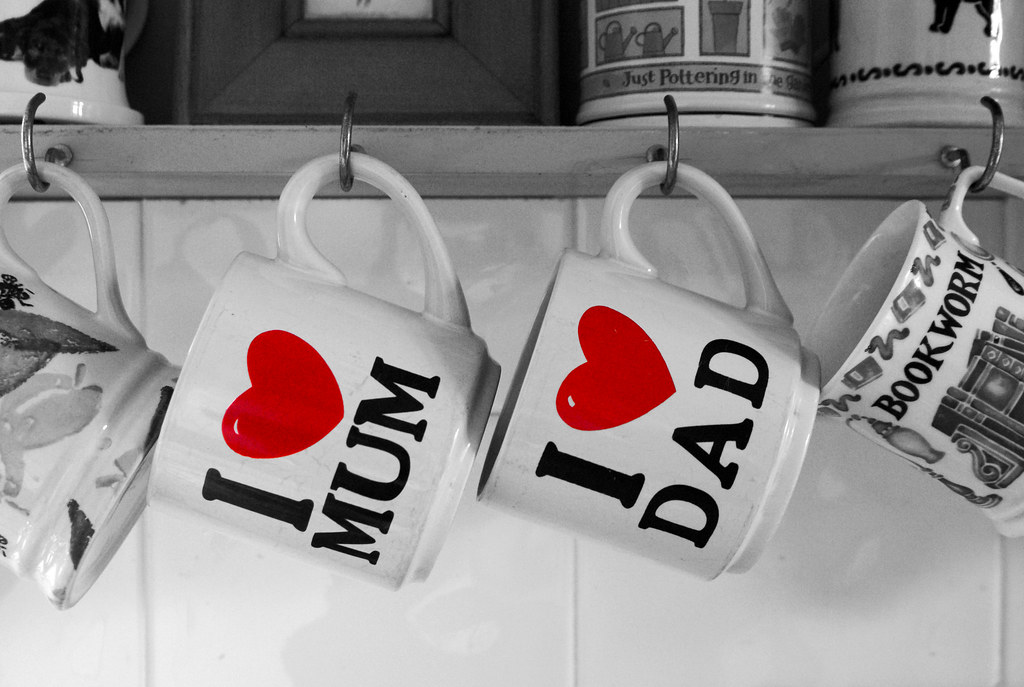 |
| Caro Wallis cc |
This seems totally fine, until we get to the 5th Commandment: Honor Thy Father and Mother. What? That is between me and my parents, not my relationship with G-d. At least that's what we think...
The reality is that the relationship we have with our parents is an explicitly holy one. What happens when each human being is created, the coming together of a man and a woman, a mother and a father, is the passing of a G-dly spark into a new creation. Something that we can do and a way that we directly interact with G-d.
The relationship we have with our parents goes much deeper and further than just the physical plane that involves our neighbors land or murdering someone. Even when we murder someone we touch only their physical self. But the relationship we have with our parents (the one I'm in right now creating a human life) goes much deeper than that.
Scientifically it's DNA and my baby's blood. Biologically it's the sustaining of two human lives for almost 15 months exclusively by one party (if you breastfeed). But spiritually it's much deeper than that. When we decided to 'have' a child, it wasn't just us two who reached a union. But G-d who provided the final spark of soul that made our child a human being.
So now that we've discovered a little of the 'hidden subtext' of the tablets, let's talk about what this really means.
There are lots of Chassidic and religious storylines about how we treat our parents. Wikipedia seems to be able to sum it all up in one page. But what about the daily reality? How do we teach our children (one of our obligations) to honor us?
We've all seen it with our kids- when they parrot our actions, our words, our world. So I say the best place to start is with your own parents. Yup, those meddling grandparents you love/hate. How you interact with them is possibly the start of how our children learn to honor us.
The Jewish perspective on honor may be much different than our newer views. We're not commanded to love them, or listen to them, we are commanded to honor them. We are commanded to help them keep their dignity and to treat them respectfully.
When we deal with EG, we're trying to teach her how to honor us. We are trying to teach her to talk to us respectfully (please, and thank you) and that at this age showing honor also means listening and responding. And I think everyday about how I honor my parents. How I am treating them in a way that I would want my daughter to treat me when she gets older. Calling when I get home safe, listening to their needs, accommodating their requests whenever I can.
I'll end with some fatherly wisdom- from my own Dad. He's fond of telling me that he's proud of me, and leaving me voicemails telling me what a wonderful person/daughter I am. But I remember the first time he told me that he liked me. He told me that he had to take care of me, do things in my best interest, etc, but that he didn't have to like me. And that he did.
The first time he said that I was utterly confused- how could you not like me? I'm your daughter! But the reality is that there is a great difference between like, love, and honor. I'm lucky in that I like, love and try to honor my parents. But at the end of the day the requirement is only one sided.
Here's to honoring your parents this Shavuot. And here's to being honored by our youngins as well!
No comments:
Post a Comment